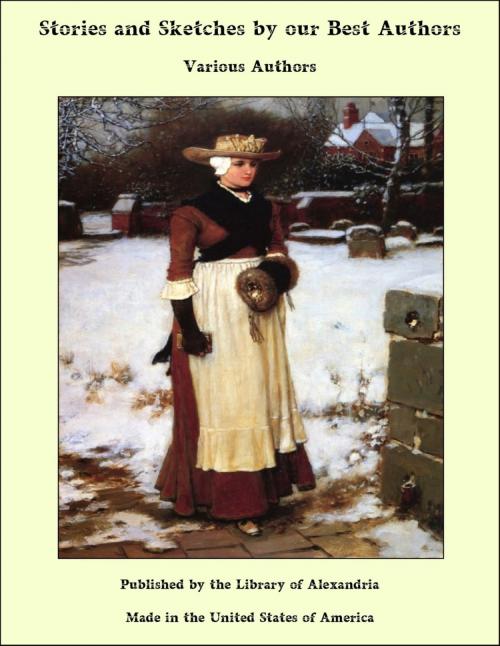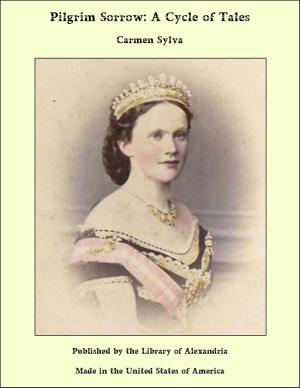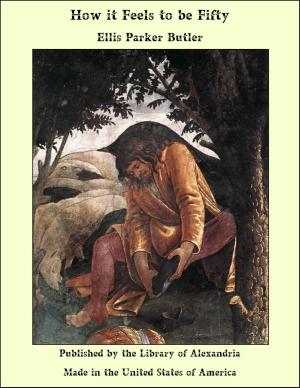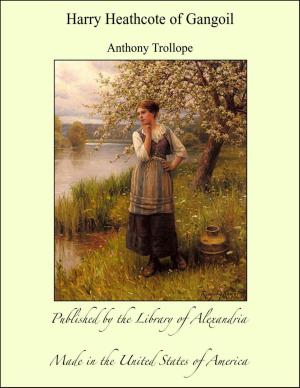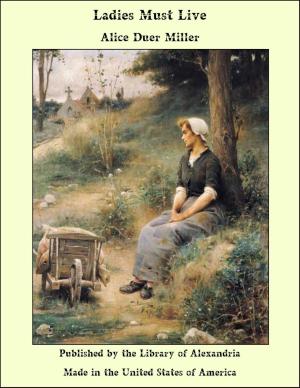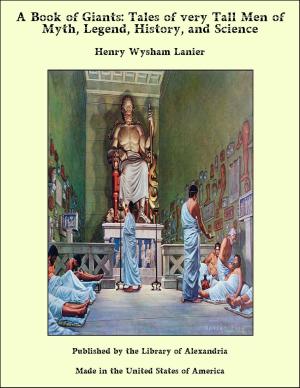Stories and Sketches by our Best Authors
Nonfiction, Religion & Spirituality, New Age, History, Fiction & Literature| Author: | Various Authors | ISBN: | 9781465584991 |
| Publisher: | Library of Alexandria | Publication: | March 8, 2015 |
| Imprint: | Language: | English |
| Author: | Various Authors |
| ISBN: | 9781465584991 |
| Publisher: | Library of Alexandria |
| Publication: | March 8, 2015 |
| Imprint: | |
| Language: | English |
DR. GRAHAM sat in his office, his book closed on his knee, and his eyes fixed upon the street. There was nothing of interest to be seen. A light snow was falling, making the pavement dreary; but it was Christmas, and his thoughts had gone back to other days, as people's thoughts will go on anniversary occasions. He was thinking of the young wife he had buried three years and three months ago; of the great fireplace in his boyhood's home, and his mother's face lit up by the glow; of many things past which were pleasant; and reflecting sadly upon the fact that life grew duller, more commonplace, as one grew older. Not that he was an elderly man,—he was, in reality, but twenty-eight; yet, upon that Christmas day, he felt old, very old; his wife dead, his practice slender, his prospects far from promising,—even the slow-moving days daily grew heavier, soberer, more serious. It was a holiday, but he had not even an invitation for dinner, where the happiness of friends and the free flow of thought might lend a momentary sparkle to his own stale spirits. The doctor was not of a melancholy, despondent nature, nor did he rely for his pleasures upon others. He was a self-made man, and self-reliant to an unusual degree, as self-made men are apt to be. His tussle with circumstances had awakened in him a combative and resistant energy, which had served him well when means were scant and the rewards of merit few. But there is something in the festal character of Christmas which, by luring from the shadows of our struggle-life the boy nature of us, makes homeless men feel solitary; and, from being forlorn, the mood soon grows to one of painful unrest; all from beholding happiness from which we are shut out. On this gray afternoon not the most fascinating speculations of De Boismont and the hospital lectures,—not the consciousness of the originality and importance of his own discoveries in the field of Sensation and Nerve Force,—had any interest for Dr. Graham. That he had talent and a good address; that he studied and experimented many hours every day; that he as thoroughly understood his profession as was consistent with a six years' actual experience as an actual practitioner; that there was nothing of the quack or pretender in him;—all this did not prevent his rent from being high, his patients few, and his means limited. With no influential friends to recommend and introduce him, he had resolutely rented a room in a genteel locality up town, had dressed well, and had worn the "air" of a man of business, ever ready for duty; but success had not attended upon his efforts, and the future gave no promise of a change. Of this he was thinking, somewhat bitterly; for what proud soul is not stung with unmerited neglect? Then a deep sadness stole over him at thoughts of the loss which had come upon his early manhood,—a loss like which there is none other so abiding in strong, wise hearts. A cloud seemed to be sifting down and closing around him, which, with unusual passivity, he seemed unable or unwilling to shake off. A carriage obstructed his view, by passing in front of his window. It stopped; then the footman descended, opened the carriage-door, and turned to the office-bell. He was followed by his master, who awaited the answer to the bell, and was ushered into the practitioner's presence by the single waiting-servant of his modest establishment. The doctor arose to receive his guest, who was a man still younger than himself, with something of a foreign air, and dressed with a quiet richness in keeping with his evident wealth and position.
DR. GRAHAM sat in his office, his book closed on his knee, and his eyes fixed upon the street. There was nothing of interest to be seen. A light snow was falling, making the pavement dreary; but it was Christmas, and his thoughts had gone back to other days, as people's thoughts will go on anniversary occasions. He was thinking of the young wife he had buried three years and three months ago; of the great fireplace in his boyhood's home, and his mother's face lit up by the glow; of many things past which were pleasant; and reflecting sadly upon the fact that life grew duller, more commonplace, as one grew older. Not that he was an elderly man,—he was, in reality, but twenty-eight; yet, upon that Christmas day, he felt old, very old; his wife dead, his practice slender, his prospects far from promising,—even the slow-moving days daily grew heavier, soberer, more serious. It was a holiday, but he had not even an invitation for dinner, where the happiness of friends and the free flow of thought might lend a momentary sparkle to his own stale spirits. The doctor was not of a melancholy, despondent nature, nor did he rely for his pleasures upon others. He was a self-made man, and self-reliant to an unusual degree, as self-made men are apt to be. His tussle with circumstances had awakened in him a combative and resistant energy, which had served him well when means were scant and the rewards of merit few. But there is something in the festal character of Christmas which, by luring from the shadows of our struggle-life the boy nature of us, makes homeless men feel solitary; and, from being forlorn, the mood soon grows to one of painful unrest; all from beholding happiness from which we are shut out. On this gray afternoon not the most fascinating speculations of De Boismont and the hospital lectures,—not the consciousness of the originality and importance of his own discoveries in the field of Sensation and Nerve Force,—had any interest for Dr. Graham. That he had talent and a good address; that he studied and experimented many hours every day; that he as thoroughly understood his profession as was consistent with a six years' actual experience as an actual practitioner; that there was nothing of the quack or pretender in him;—all this did not prevent his rent from being high, his patients few, and his means limited. With no influential friends to recommend and introduce him, he had resolutely rented a room in a genteel locality up town, had dressed well, and had worn the "air" of a man of business, ever ready for duty; but success had not attended upon his efforts, and the future gave no promise of a change. Of this he was thinking, somewhat bitterly; for what proud soul is not stung with unmerited neglect? Then a deep sadness stole over him at thoughts of the loss which had come upon his early manhood,—a loss like which there is none other so abiding in strong, wise hearts. A cloud seemed to be sifting down and closing around him, which, with unusual passivity, he seemed unable or unwilling to shake off. A carriage obstructed his view, by passing in front of his window. It stopped; then the footman descended, opened the carriage-door, and turned to the office-bell. He was followed by his master, who awaited the answer to the bell, and was ushered into the practitioner's presence by the single waiting-servant of his modest establishment. The doctor arose to receive his guest, who was a man still younger than himself, with something of a foreign air, and dressed with a quiet richness in keeping with his evident wealth and position.
